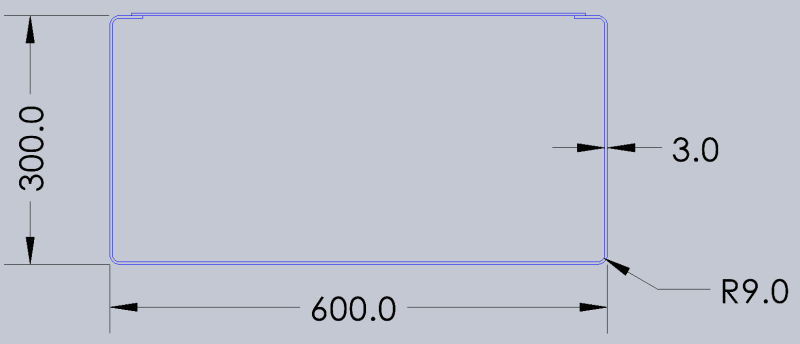Thank you very much for all the replies, much appreciated. The reason for making this post is for me to understand WHY st steel tanks will crack but alum tanks won't. I think there might be a gap in my materials science understanding here.
As requested, I have added a typical cross section of the tank, see link below. Bottom section is bent from 5052-h32 bendable marine sheet. Internal radius is 9 mm. End plates are tig welded from outside and mig welded from inside. Will have baffles every +- 400 mm. Top sheet is only welded form outside.
LittleInch, thank you very much for your feedback. I do have some questions regarding the following you said:
"Aluminium is "softer" than Stl steel, I.e. has a lower yield, but doesn't work harden as much which is where you might get "cracking""
I don't understand how this can be true if the ultimate strain of alum sheet is less than stainless sheet? This was actually the original reason why I made this post, because in my mind it doesn't add up why st steel would crack before alum. I think I might be missing something?
5052-h32 ultimate strain: roughly 10%
5052-0 ultimate strain: roughly 25%
316 st steel ultimate strain: roughly 40%
So doesn't this imply that 316 can be bent (strained) much more than al before cracking.
As TugboatEng and EdStainless have suggested, maybe this relates to corrosion cracking.
I also don't think fatigue could be the culprit? Does anyone have any insights?
I really do appreciate the feedback.

